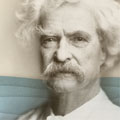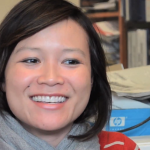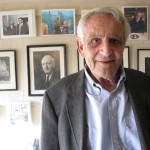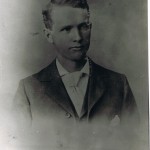The writings and remarks of Juan Williams, Fox News political analyst and provocateur, have a habit of generating controversy.
He titled his recent tribute on The Root to Supreme Court Justice Clarence Thomas, after 20 years on the court, “Clarence Thomas: Black Nationalist?” Williams called Thomas “a leading black conservative,” admirably independent: “His race neutral approach is a sharp contrast to race conscious programs approved to remedy past discrimination.”
Jack White, former Time magazine columnist who also contributes to The Root, dismissed Williams’ column as a “ludicrous piece” that tried to “remake Thomas into a black nationalist icon instead of the Uncle Tom that many blacks consider him to be.”
A second controversy occurred while Williams was working for both National Public Radio and Fox News. Contending on Fox’s “The O’Reilly Factor” that fear of Muslims should not be used to restrict their rights, Williams said, “When I get on the plane, I got to tell you, if I see people who are in Muslim garb and I think, you know, they are identifying themselves first and foremost as Muslims, I get worried, I get nervous.”
NPR terminated Williams’ contract two days later, on Oct. 20, 2010. Fox signed Williams to a three-year contract reportedly worth $2 million, and Williams wrote a book critical of NPR titled Muzzled: The Assault on Honest Debate.
Despite the recent controversies, Williams’s earlier journalism commands respect. During 23 years at The Washington Post, he served as national correspondent and political columnist. He wrote a distinguished biography of the first African American on the U.S. Supreme Court, Thurgood Marshall: American Revolutionary, and Eye on the Prize: America’s Civil Rights Years, 1954-1965, which accompanied a documentary TV series. His TV documentary writing earned him an Emmy.
So we sought his opinion about a vexing challenge for America, how to respond to a black underclass that seems to lack the education and support network to succeed. In an earlier interview, Pulitzer–winning Washington Post columnist Eugene Robinson had recommended to us a domestic Marshall Plan, equivalent to the huge U.S. effort after World War II to rebuild European economies.
In another interview, Harvard professor Henry Louis Gates, Jr, director of the W.E.B. Du Bois Institute for African and African American Research, had called for a second civil rights movement.
But Williams takes a strikingly different approach, perhaps reflected in the title of his 2007 book Enough: The Phony Leaders, Dead-End Movements, and Culture of Failure That Are Undermining Black America—and What We Can Do About It.
Williams thinks it is unrealistic to count on help from new government programs: “Now it’s politically untenable to get more money for stimulus.” He stresses individual responsibility—educating yourself and choosing to be accountable for your own circumstances.
“What would I say to my daughter, what would I say to my sons? ‘Here’s what you can do to help yourself,’” Williams continues. He suggests staying in school and the job market, not getting married and not having children until you have a job, and being realistic. “Don’t think you’re going to be a rap star,” he says.
Born in Panama, Williams, 57, describes his roots in the West Indies and the sense of black people there not as broken, but as strong and capable. He talks about the “much higher” educational level in the West Indies and the stress on taking advantage of academic opportunities.
Williams majored in philosophy at Haverford College in 1972. He voices skepticism about Haverford’s initial civil-rights-era efforts in the late 1960s to achieve student body diversity by recruiting black inner-city high school students. He sees the black students in his class of ’72 as a reaction—three African princes and three prep school boys.
But he credits the civil rights movement and Dr. Martin Luther King for opening doors for him, recalling a time when The Washington Post had no black writers. Pointing to the absence of black TV anchors, Williams says race still remains “a real ceiling and a real issue for me.”
For his children, however, race is less important. His daughter, Rae, is married to a white man. His two sons, Antonio and Raphael, find race “real, but not defining.”
The generational difference is captured in a Fox segment in which Williams takes his two sons along King’s route on the day he helped lead the 1963 March on Washington and then to the new Martin Luther King Jr. Monument.
“I grew up in a world that was being changed by Dr. King,” Williams says. “But for you, you grew up in a world that’s already been changed.”
Loren Ghiglione
























